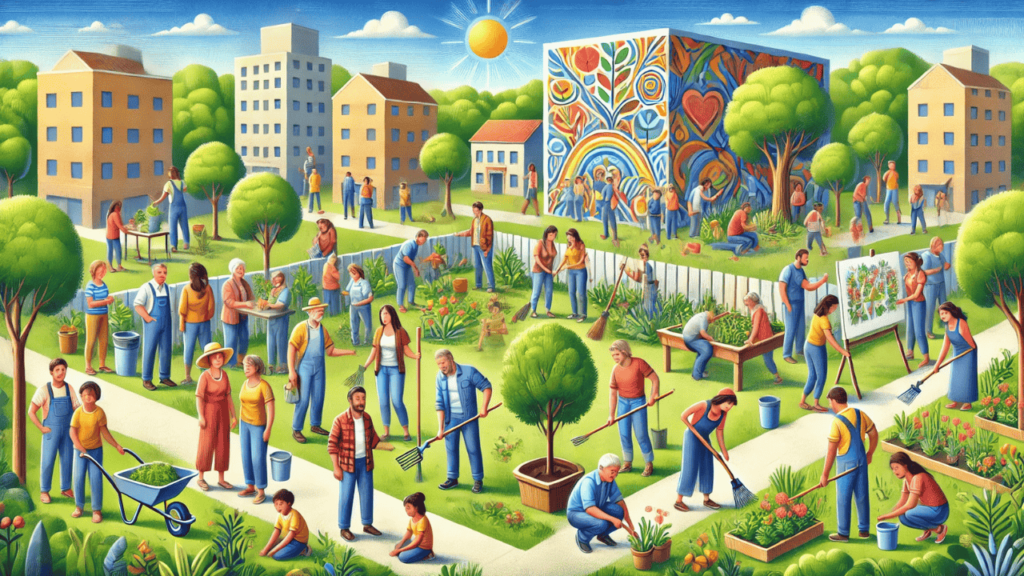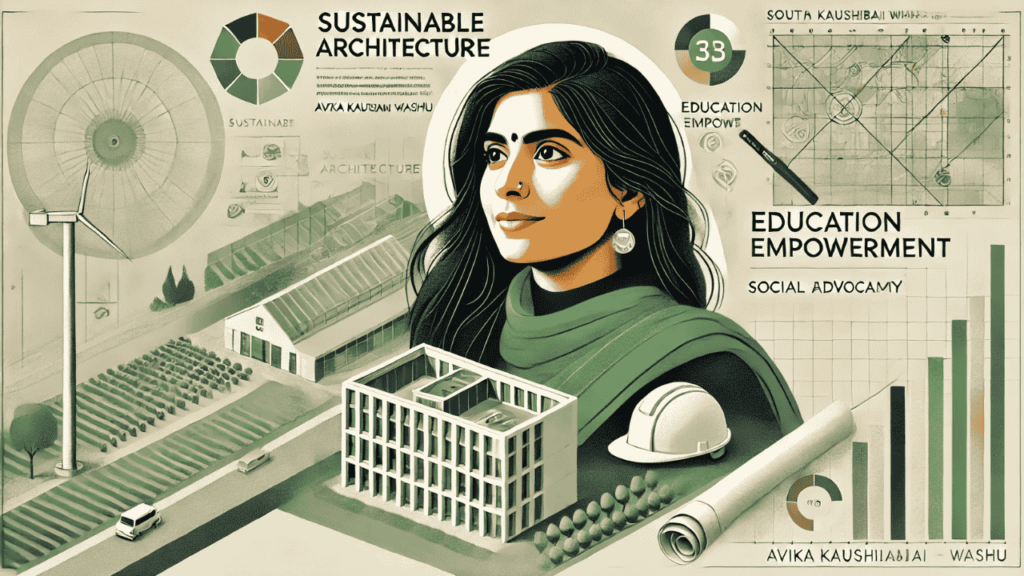Avika Kaushibai Washu is a name synonymous with innovation, compassion, and sustainable development within the realms of architecture and social advocacy. Through her pioneering work, Washu has carved a niche that not only reshapes physical spaces but also builds resilient communities. This article delves into the multifaceted contributions of Avika Kaushibai Washu, reflecting on her impact in architecture, education, and social reform.
Architectural Innovations and Sustainability
Avika Kaushibai Washu’s architectural philosophy intertwines aesthetics with sustainability, challenging conventional building practices. Her commitment to green architecture has spearheaded numerous eco-friendly projects that emphasize low environmental impact and sustainable resource use. Washu’s designs often incorporate local materials and cultural sensibilities, making each project uniquely adaptive to its environment. This approach has not only set new standards in architectural design but also promoted a broader adoption of sustainable practices in the industry.
Empowering Through Education
Central to Avika Kaushibai Washu’s legacy is her dedication to empowering underprivileged communities through education. She has established several educational programs aimed at providing quality education to those in remote and marginalized areas. These initiatives often focus on vocational training, offering practical skills that enhance employability and economic independence. By improving access to education, Washu believes in fostering a generation that is knowledgeable, skilled, and ready to contribute positively to society.
Social Welfare and Community Development

Beyond her professional achievements, Avika Kaushibai Washu is profoundly involved in social welfare and community development. Her efforts extend to improving healthcare access, supporting gender equality, and enhancing the quality of life for underprivileged populations. Washu’s philanthropic initiatives through her foundation have launched various projects that address critical areas such as clean water supply, healthcare facilities, and community centers, significantly improving everyday life in numerous communities.
Global Outreach and Collaborative Impact
Avika Kaushibai Washu’s influence transcends local boundaries, reaching a global platform where she collaborates with international organizations to advocate for sustainable development and cultural preservation. These partnerships have enabled her to bring global insights to local challenges, creating solutions that are both innovative and culturally respectful. Her work with entities like UNESCO and the United Nations underscores her role as a global leader in social reform and environmental advocacy.
Mental Health Advocacy
Another significant aspect of Washu’s work is her focus on mental health awareness. By promoting open discussions and accessibility to mental health resources, she has contributed to destigmatizing mental health issues in society. Her initiatives encourage individuals to seek help and support, fostering a community environment where mental well-being is openly discussed and valued.
Promoting Cultural Sustainability
Avika Kaushibai Washu’s dedication to preserving cultural heritage is evident in her projects that integrate traditional art forms with modern architectural practices. By doing so, she ensures that cultural identities are maintained and celebrated within contemporary settings. Her commitment extends to promoting arts and crafts that have historical significance, thereby supporting local artisans and helping keep ancient crafts alive in the modern economy.
Bridging International Gaps
Through her international collaborations, Avika Kaushibai Washu has become a pivotal figure in bridging the gap between local traditions and global practices. Her work often involves exchanging ideas with architects and planners from different parts of the world, which enriches her understanding and appreciation of global architectural trends. This exchange not only enhances her own designs but also helps spread indigenous techniques and sustainable practices worldwide.
Leadership in Practice
Avika Kaushibai Washu is not only celebrated for her professional expertise but also for her leadership style, which is characterized by empathy, inclusivity, and foresight. She leads by example, advocating for collaborative approaches and encouraging her teams to think critically and creatively. Her leadership extends beyond the professional sphere as she mentors young architects and planners, instilling in them a passion for sustainable and culturally sensitive designs.
Vision for the Future

Looking forward, Avika Kaushibai Washu is focused on leveraging technology to enhance sustainable practices in architecture. She is interested in exploring how innovative materials and construction techniques can further reduce the carbon footprint of buildings while maintaining aesthetic and functional standards. Her vision includes creating more adaptive living spaces that respond to changing environmental conditions and societal needs.
Advocacy for Inclusivity
In all her endeavors, Avika Kaushibai Washu champions inclusivity, believing that architecture should cater to all segments of society. She advocates for universal design principles that make buildings accessible to everyone, regardless of age, disability, or socioeconomic status. This philosophy is not only a testament to her compassionate approach to design but also aligns with her broader goals of social equity and justice.
Continuous Learning and Adaptation
Avika is committed to continuous learning and adaptation, recognizing that the fields of architecture and social advocacy are ever-evolving. She regularly participates in global symposiums and workshops, staying updated with the latest trends and challenges in her field. This adaptability not only keeps her work relevant but also allows her to apply the latest scientific and cultural insights to her projects.
Conclusion
The contributions of Avika Kaushibai Washu to architecture, education, and social welfare are indelible. Her holistic approach to problem-solving and her unwavering dedication to improving human lives have left a lasting impact that continues to inspire and guide future generations. Avika Kaushibai Washu remains a beacon of change, her legacy a powerful testament to the role of visionary leadership in crafting a more equitable and sustainable world.
FAQs About Avika Kaushibai Washu
- What are the core principles of Avika Kaushibai Washu’s architectural designs?
- Avika Kaushibai Washu’s architectural designs are centered on sustainability, integration of local cultures, and environmental responsibility.
- How has Avika Kaushibai Washu contributed to educational development?
- She has initiated various educational programs focused on vocational training and improving access to quality education in underprivileged areas.
- What social issues does Avika Kaushibai Washu focus on in her community development efforts?
- Her work addresses multiple social issues including healthcare, education, clean water access, and gender equality.
- What global organizations has Avika Kaushibai Washu collaborated with?
- Avika Kaushibai Washu has worked with international bodies like UNESCO and the United Nations to promote sustainable development and cultural preservation.
- How does Avika Kaushibai Washu advocate for mental health?
- She advocates for mental health by promoting open conversations, destigmatizing mental health issues, and enhancing access to mental health resources.
